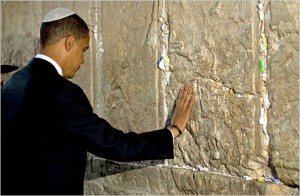Two thousand years ago the Jewish sages taught that we have at least three names during our lifetime — the name our parents give us, the name our friends call us, and the name we earn for ourselves in the world.
The Name Our Parents Give Us
Parents choose names for a variety of reasons. They may name us after a deceased relative. They choose a name they wish they had been called. They may simply choose a name they like. One couple in my synagogue encountered a name in an ancient Greek myth that they couldn’t get out of their head, so they used it for their first son.
The unmistakable truth is that the name we are given reflects our parents’ wishes. We do not choose it. We do not control it. We may love it. We may hate it. Yet, we have no choice but to be identified with it.
The Name Our Friends Call Us
We have a bit more control over the name our friends call us. It often derives from our personality or skills or interests. Yet, it, too, often falls outside of our control.
My grandfather was named Ervin, but his friends called him Tam. He was tall, and his friends thought he looked like a famous basketball player of the time named Tam. Thus, he earned a nickname for life.
A Hebrew name of “Beautiful Face”
While we may not have much control over the name our friends call us, we can try to live up to its positive aspirations. Rabbi David Whiman tells the story of an adult woman studying to become a Bat Mitzvah. She told him that her Hebrew name was “Shaynah Punim.” (Many Jews have a Hebrew name in addition to their English or other vernacular name, typically given by parents at birth.)
Rabbi Whiman laughed when she told him this Hebrew name. “That’s not your Hebrew name,” he said. “Yes it is,” she replied. “That’s what everyone called me when I was a kid.”
Rabbi Whiman said, “They may have called you that, but “shaynah punim” means ‘beautiful face.’ It’s an expression, something like ‘cutie pie.’ It’s not a name.”
“No,” she insisted, “that’s my Hebrew name.” He complied with her request, and remarked later about how happy he was to do so. He said to her during the Bat Mitzvah service, “My hope, my prayer is that you will live your life in such a way that when others see you they will see in you the light of loving, ethical and compassionate concern that we Jews call the face of the Divine, and see in your actions the image of God implanted within us. So that when you are called by the Divine to render account for the way you used the gift of life entrusted to you, the Good Lord himself will reach out and touching your face, call you ‘shaynah punim’ as well.”
The name others call us can be a spur to bring out the best within us.
The Name We Earn for Ourselves
But now we come to the name that matters most. It is the one we influence and control. It is the name we make for ourselves. It is the one we create through our deeds. It is the one we discover through our successes and our failures, our frustrations and our dreams, our aspirations and our disappointments.
Every moment of life is an opportunity to create the name we make for ourselves. It is the hardest to sustain, and the most important to discover.
Pope Francis
This truth helps understand the importance of the name the new Pope has chosen for himself. He was given the name Jorge Bergolio at birth. His friends have called him dignified, caring for the poor, austere and humble in his way of life. Now we will witness the name he earns for himself. Will it reflect our world’s deepest spiritual needs and hopes?
Perhaps Francis has already taken the first steps forward. In a recent speech he said, when he discovered he had been elected pope, Cardinal Bergolio received a hug from his friend Cardinal Hummes of Brazil. “He hugged me. He kissed me. He said don’t forget about the poor,” Francis recalled. “And that’s how in my heart came the name Francis of Assisi who devoted his life to the poor, missionary outreach and caring for God’s creation.”
His first appearance seemed to echo other qualities of Francis of Assisi, as Pope Francis displayed humility in asking the gathered crowd to pray for him and seemed relaxed and simple in his words and gestures. This style reflects his history of simplicity and caring for the poor, choosing to ride the bus to work and live in a small apartment as Cardinal in Buenos Aires.
We do not have to be Catholic to hope and pray that Pope Francis continues on this path of earning the name he has chosen for himself.


